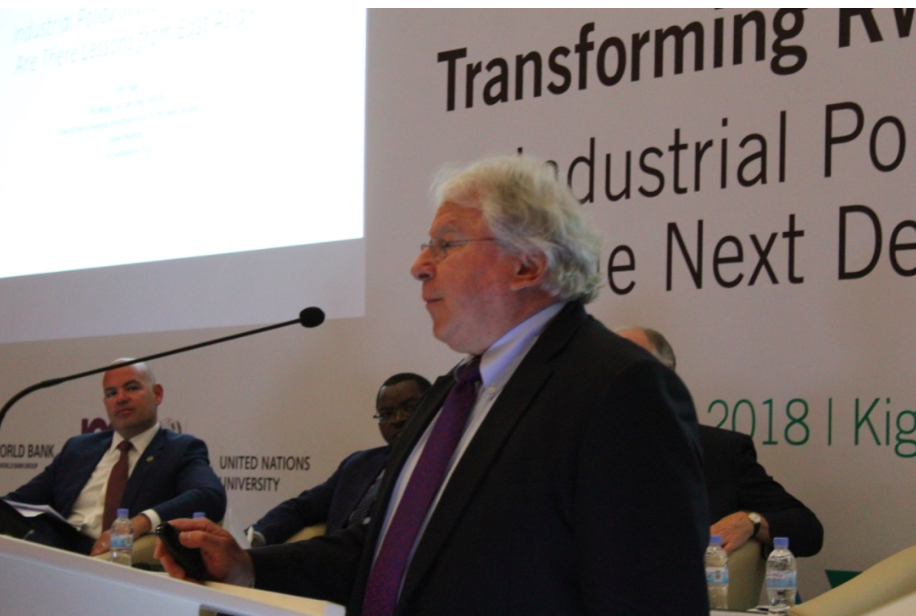
Blog
Can natural resources jump-start industrialization?
At the end of last year, I filmed a lecture that will be part of a massive open online course (MOOC) on industrialization in Africa. The course is...
The event in Kigali focused on industrial policy, and its role in realizing its medium-term and long-term economic development ambitions of Rwanda.
Rwanda’s 2011 policy was designed to support the goal of achieving middle-income status by 2020, partly through deliberate structural transformation and export promotion. Under the current policy, Rwanda has had impressive success in structural transformation with labour moving into more productive sectors, coupled with increased manufacturing and export diversification.
Rwanda has proposed an ambitious plan for further growth and development over the coming seven years. One of the key goals is to promote industrialization and attain a structural shift in the export base to high-value goods and services with the aim of growing exports by 17% annually. The success of this goal will depend on a clear and cohesive industrial policy.
 John Page, UNU-WIDER Non-Resident Researcher, provided insights to pathways for structural change in the first panel of the conference — Industrial Policy for the Next Decade — together with the Country Director of the IGC, Richard Newfarmer, and the Director General of Planning, Monitoring and Evaluation at the Ministry of Trade, Jonas Munyurangabo. John Page’s presentation drew on evidence from the new UNU-WIDER book with Finn Tarp and Richard Newfarmer (eds), Industries without Smokestacks: Industrialization in Africa Reconsidered, being published by Oxford University Press on 1 November 2018 (full open access).
John Page, UNU-WIDER Non-Resident Researcher, provided insights to pathways for structural change in the first panel of the conference — Industrial Policy for the Next Decade — together with the Country Director of the IGC, Richard Newfarmer, and the Director General of Planning, Monitoring and Evaluation at the Ministry of Trade, Jonas Munyurangabo. John Page’s presentation drew on evidence from the new UNU-WIDER book with Finn Tarp and Richard Newfarmer (eds), Industries without Smokestacks: Industrialization in Africa Reconsidered, being published by Oxford University Press on 1 November 2018 (full open access).
Attendees included the Minister of Trade and Industry, Minister of Finance, Minister of Infrastructure, Minister of State for Local Government, government heads of mining, agriculture, investment and research agencies as well as country heads of the World Bank, Department for International Development (DFID), the African Development Bank (AfDB) and the United Nations Economic Commission for Africa (UNECA). Along with representatives from government, non-government and private sectors, there were approximately 120 people in attendance.